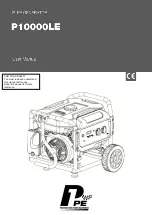
3.3 Unit data of the 400V units
3.3.1 Overview
Inverter size
07
09
10
Housing size
M
Output rated power
S
out
/ kVA
1,8
2,8
4
Max. rated motor power
P
mot
/ kW
0,75
1,5
2,2
Input rated voltage
U
N_ac
/ V
400 (UL: 480)
Input voltage range
U
IN_ac
/ V
305...528
Phases
3
Mains frequency
f
N
/ Hz
50 / 60 ±2
Rated input current @
U
N_ac
=
400V
I
IN
/ A
3,6
6
8
Rated input current @
U
N_ac
=
480V
I
IN_UL
/ A
2,5
4,8
7
Output voltage
U
out
/ V
0...Uin respectively (Uindc / √2)
Output frequency
2)
f
out
/ Hz
0...400 (f
SN
=4kHz)
0...599 (f
SN
=8kHz)
Output phases
3
Output rated current @
U
N_ac
=
400V
I
N
/ A
2,6
4,1
5,8
Output rated current @
U
N_ac
=
480V
I
IN_UL
/ A
1,8
3,4
4,8
Short time current limit
1)
I
HSR
/ %
180
Over current
1)
I
OC
/ %
216
Rated switching frequency
2)
f
SN
/ kHz
8
4
4
Max. switching frequency
2)
f
Smax
/ kHz
8
Corner frequency
f
d
/ Hz
6
Power loss at nominal operating
3)
P
D
/ W
45
49
70
Power dissipation at Standby (noP)
3)
P
D_nop
/ W
10
Maximum current 0Hz / 6Hz at f
S
=4 kHz
1)
I
Max_Out
/ %
100 / 180
100 / 180
100 / 180
Maximum current 0Hz / 6Hz at f
S
=8 kHz
1)
I
Max_Out
/ %
100 / 180
100 / 150
85 / 150
Max. heat sink temperature
T
HS
/ C°
90
Temperature for derating the switching frequency
4)
T
dr
/ C°
85
Temperature for uprating the switching frequency
4)
T
ur
/ C°
80
Max. braking current
I
B_max
/ A
7
Min. brake resistance value
R
B_min
/ Ω
120
DC switch-off level „Error! Under potential“
U
UP
/ V
240
DC switch-off level „Error! Over potential“
U
OP
/ V
840
Insulating resistance
R
/ MΩ
10
Max. permissible main fuse type gG
A
16
Table 8:
Overview of the 400V unit data
1) The values refer in % to the output rated current I
N
.
2) The output frequency is to be limited in such a way that it does not exceed 1/10 of the switching frequency.
Units with higher max. output frequency are subject to export restrictions and are only available on request.
3)
Rated operation corresponds U
N_ac
= 230V, , rated switching frequency, output frequency = 50 Hz.
4) On reaching the temperature Tdr the switching frequency is step down. . The switching frequency
is increased again on cooling down to temperature Tur.
5) The voltage at the motor is dependent on the series-connected units and on the control method
27
















































